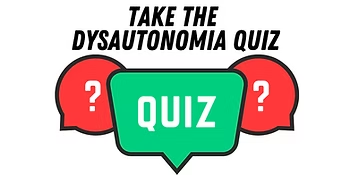The Undetected Influence of Yesteryear's Concussions
Are you consistently experiencing cognitive sluggishness, mental fatigue, or slight cognitive decline? These symptoms might be rooted in a concussion you suffered years ago – whether it was ten, twenty, or even thirty years prior. A significant number of individuals, wrestling with brain fog and fatigue, have approached me with concerns about cognitive decline. After conducting a detailed examination of their medical history, I often discover a past concussion event. It’s important to note that the severity of the concussion doesn’t always correlate with the long-term impact; even a mild concussion could lead to these symptoms.
Often, these individuals were involved in a motor vehicle accident, experienced whiplash, or endured some form of brain trauma. Now, years later, they find their brain function compromised. Current research suggests that our brains can be ‘primed’ by past injuries. In simpler terms, this means that a prior injury, such as a concussion, could make the brain more susceptible to subsequent ‘insults’ or traumas.
What exactly happens is that an injury sustained a decade or more ago primes your brain, setting the stage for easier harm from even subtle insults today. This susceptibility can lead to increased neuroinflammation, which is when the brain becomes more inflamed. When this occurs, you’re likely to experience symptoms such as brain fog, mental fatigue, and dysautonomia.
Navigating the Medical Maze
Often, people suffering from these symptoms embark on a frustrating journey from one doctor to another, yet find no satisfactory answers. This is largely because no one has probed into whether they’ve had any concussions or whether they’ve been in any motor vehicle accidents in the past. The pivotal link between neuroinflammation and past concussions is frequently overlooked.
Unseen Consequences of Past Injuries
Concussions can cause significant neuroinflammation over time. So, while you might have sustained a head injury years ago with seemingly no symptoms, that old injury could be stealthily impacting your brain today.
Conclusion: Prioritize Brain Health
Understanding the connection between past concussions and current cognitive issues can be the first step towards better brain health. If you found this article helpful, please like, comment, and share it with someone who might benefit from this information. Remember, every step towards understanding our brain health is a stride towards a healthier life.
Frequently Asked Questions (FAQ)
Yes, absolutely. A concussion suffered 10, 20, or even 30 years ago can be the root cause of current symptoms like cognitive sluggishness, mental fatigue, and brain fog. Research shows that a past injury can "prime" the brain, making it more susceptible to inflammation and dysfunction from even minor stresses later in life.
The key long-term symptoms include persistent brain fog, mental fatigue, a feeling of slight cognitive decline, and conditions like dysautonomia. These issues often lead people on a frustrating journey from doctor to doctor without answers, as the link to the old injury is frequently overlooked.
Not necessarily. The blog emphasizes that the severity of the initial concussion does not always correlate with the long-term impact. Even a mild concussion or whiplash from a car accident can be significant enough to "prime" the brain and lead to neuroinflammation and symptoms years later.








